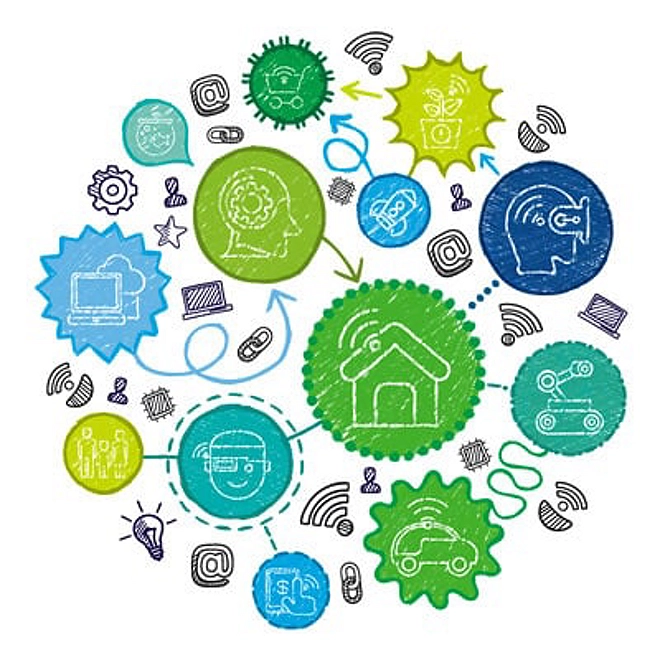Globally Consistent ESG Reporting
What is ESG reporting and why is it important for business?
Environmental, Social and Governance (ESG) information can include a broad range of issues, for example: greenhouse gas emissions, energy, water and waste management/recycling, biodiversity (environmental), health and safety, diversity and inclusion, human rights, data security, selling practices, product safety (social) and business ethics and culture (governance).
Sustainability reporting standards and frameworks have been developed to help companies enhance transparency and communicate sustainability information. These address the varying objectives of users of this non-financial information, which can be summarized as:
- Risks and company impacts relevant to enterprise value, to gain insights into the sustainability of companies’ business models and supply chains. This information includes many of companies’ impacts on people, planet and the economy (for example, for use by investors)
- Companies’ role in sustainable development, to understand broader impacts companies have on people, the economy and the planet, and their wider contributions towards the United Nations Sustainable Development Goals (SDGs)
Why do we need harmonized global sustainability reporting standards?
Today, we have the unique opportunity to harmonize global sustainability reporting standards. Reliable, consistent, and comparable sustainability information is essential to help:
- Direct capital to sustainable enterprise and to make global capital markets resilient and efficient
- Address urgent world issues—climate change and the SDGs
In recent times, voluntary sustainability reporting standards, frameworks and initiatives have proliferated. However:
- They have proven insufficient to promote consistent and comparable ESG performance information
- There is a lack of consistent and comparable information (including period to period, company to company, within sectors)
- There is inconsistent quality in the governance and controls over information, including the type and extent of third-party assurance provided over that information
- They can lead to selective reporting not connected with financial information, which can lead to greenwashing
Although 92% of S&P companies were reporting ESG metrics by the end of 2020, according to a 2020 BlackRock survey of clients, 53% of global respondents cited “poor quality or availability of ESG data and analytics” and another 33% cited “poor quality of sustainability investment reporting” as the two biggest barriers to adopting sustainable investing.
A global standard-setting approach based on principles of legitimacy, independence, transparency, public accountability and oversight, and thorough due process enables the development of high-quality sustainability reporting standards. This results in consistent, comprehensive, and comparable information.
A global approach to sustainability reporting standards is necessary because:
- Climate change and the SDGs require a global approach
- Businesses have global value chains, face global risks, and access capital from global investors
- Investors, companies, and other stakeholders benefit from a common language for sustainability reporting standards, facilitating comparisons
Historically, financial information has been published in corporate reports and sustainability information in separate sustainability reports. However, as it has become clearer how sustainability issues can affect the ability of companies to create enterprise value over time, users increasingly expect to see disclosure of ESG information that relates to enterprise value creation in mainstream corporate reporting.
Connectivity with financial information plays a critical role. ESG considerations may apply to existing financial reporting requirements. Educational materials published by the IASB and the FASB remind preparers that many current accounting standards already require an entity to consider ESG matters when they have a material effect on the financial statements, especially where judgements and estimates are required, for example in assessing impairment of long-life assets. The front and back half of annual reports should be intrinsically linked.
What is the landscape? Who are the standard-setters for ESG disclosure?
At COP26 in November 2021, there was a major development that will lead to significant change to corporate reporting. The International Financial Reporting Standards Foundation (IFRSF) announced the establishment of the ISSB (International Sustainability Standards Board) to develop—in the public interest—a comprehensive global baseline of high-quality sustainability disclosure standards to meet investors’ information needs.
The announcement of the new ISSB also included a commitment by leading international sustainability standardsetters to consolidate into the IFRSF. The Climate Disclosure Standards Board (CDSB) has already merged into the IFRSF
and the Value Reporting Foundation (VRF) has agreed to do so by June 2022. This commitment sends a clear signal to the market that the ISSB is emerging as the global sustainability standard-setter. It will help reduce fragmentation and confusion in the sustainability standard-setting landscape.
In March 2022, the IFRSF and the Global Reporting Initiative (GRI) announced a collaboration agreement under which their respective standard-setting boards, the ISSB and the Global Sustainability Standards Board (GSSB), will seek to coordinate their work programmes and standard-setting activities to enhance interoperability between reporting on enterprise value to meet the needs of capital markets and reporting on impacts to stakeholders more broadly.
On 31 March 2022, the ISSB published exposure drafts (EDs) proposing its first two standards:
- IFRS S1 General Requirements for Disclosure of Sustainability related Financial Information
- IFRS S2 Climate-related Disclosures
The EDs are based on the two Prototypes published by the IFRSF in November 2021 (i.e., the General Requirements for Disclosure of Sustainability-related Information Prototype and the Climaterelated Disclosures Prototype). These Prototypes were developed by the Technical Readiness Working Group (TRWG) that was created by the IFRSF in March 2021. The organizations that participated in the TRWG are dedicated to meeting the information needs of investors and other participants in the world’s capital markets: the CDSB, the IASB, the Taskforce on Climate-related Financial Disclosures (TCFD), the VRF, and the World Economic Forum (WEF) International Business Council’s (IBC) Measuring Stakeholder Capitalism Initiative. Deloitte represented WEF in the TRWG technical program. WEF’s IBC contributed its thinking on stakeholder capitalism metrics that included core ESG metrics, which leverage existing standards and metrics.
The prototypes build on the work of the ‘Group of 5’ leading sustainability standard-setters and framework providers (CDP, CDSB, GRI, IIRC and SASB – before they merged to form the VRF). At the end of 2020, the group set out a vision for a comprehensive corporate reporting system and made a commitment to work together and with the IFRSF to achieve this. They subsequently published a prototype climate-related financial disclosure standard to illustrate how their different frameworks and standards, together with TCFD, could form the basis of a global standard.3
The International Organization of Securities Commissions (IOSCO) is driving harmonization in global sustainability reporting standards. It stated that it stands ready to play the same role that it did for financial reporting standards 20 years ago. The IOSCO Board has committed to work with the IFRSF to develop an effective system architecture for setting sustainability reporting standards under the new ISSB. Global sustainability reporting standards can serve as a “baseline for consistent and comparable approaches to mandatory sustainability-related disclosures across jurisdictions”.
There are also important developments at the jurisdictional level.
- The European Commission (EC) is looking to improve sustainability reporting. In April 2021, it published its proposed Corporate Sustainability Reporting Directive (CSRD) that includes a provision for mandatory European Sustainability Reporting Standards (ESRS) to be developed by EFRAG. Debates are currently taking place at EU Parliament and EU Council. The final CSRD is expected by end of Q2 2022. EFRAG has published working documents in relation to ESRS development and expects to release some exposure drafts. The European Commission has acknowledged that “it is clearly in the interests of the EU and European companies and investors to have standards that are globally aligned. EU standards should aim to incorporate the essential elements of globally accepted standards currently being developed” and that the “proposed EU sustainability reporting standards would build on and contribute to standardisation initiatives at global level.”
- In the US, the SEC consulted on climate-related disclosures in March 2021 and issued a proposed rule The Enhancement and Standardization of Climate-related Disclosures for Investors on 21 March 2022. Furthermore, the US President’s international climate finance plan explicitly includes a commitment for the US to support and shape the work being undertaken by the IFRSF and IOSCO towards “consistent, comparable, and reliable climate-related financial disclosures”. The SEC is co-chair of IOSCO’s Technical Expert Group charged with undertaking technical work to assess the viability of the IFRSF’s sustainability reporting standards initiative
How does the establishment of ISSB change the landscape?
The landscape is now changing fast. The global ISSB standards are an essential part of a system change that will be required to create a global baseline of sustainability information addressing the needs of global capital markets. To be effective, the standards will need to be brought into regulation around the world, together with associated enforcement, monitoring, governance and controls, assurance, and training. Worldwide adoption of the ISSB standards is needed to achieve true harmonization, to replace the alphabet soup of voluntary standards and frameworks.
The standards could be developed as building blocks: global standards could provide a globally consistent baseline of information reported to capital markets that can be supplemented with additional requirements to reflect jurisdictional public policy priorities.
Such an approach could reduce the risk of regulatory fragmentation. It has received the support of the G7 and G20 finance ministers and central bank governors. In November 2021, finance ministers and central bank governors from 41 jurisdictions on six continents publicly welcomed the announcement of the establishment of the ISSB and its work program to develop a set of internationally consistent, high-quality, and reliable baseline standards for disclosure of sustainability-related information on enterprise value.
See Appendix for a timeline and details on the organizations referenced.
What is Deloitte’s role in the move to global ESG standards?
- Deloitte strongly supports the newly-established ISSB
- Deloitte represented WEF in the TRWG technical program. Furthermore, Deloitte acted as a facilitator, together with WEF and the Impact Management Project (IMP), to the joint work of the ‘Group of 5’ on both their Statement of Intent and prototype climate-related financial disclosure standard
- In addition to supporting the development of metrics on stakeholder capitalism as part of the WEF IBC’s project, Deloitte is leading its work to convene and accelerate moves to global standards
- Deloitte is a global signatory to TCFD and reports in line with its recommendations and is directly represented on the TCFD taskforce



